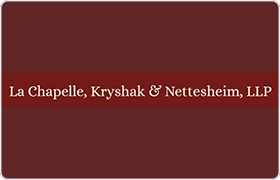Bancroft Real Estate Lawyer, Wisconsin
Sponsored Law Firm
-
 x
x

Click For More Info:
-
La Chapelle, Kryshak & Nettesheim, LLP
262 W Grand Ave Wisconsin Rapids WI 54495» view mapReal Estate Law Passionate and Dedicated Attorneys
The law firm of La Chapelle, Kryshak & Nettesheim, LLP, has provided legal services to the people of central Wisconsin for over a century.
800-886-1251
Nicholas R. Abts
✓ VERIFIEDEstate, Divorce & Family Law, Real Estate, Business, Power of Attorney
Nicholas practices law in central Wisconsin, serving clients in Wood County, Portage County and the surrounding area. He focus on estate planning, bus... (more)
J.P. La Chapelle
Estate Planning, Business, Real Estate, Federal Appellate Practice, Estate
Status: In Good Standing
Guy Robert Detlefsen Jr.
Family Law, Employment, Real Estate, Wills & Probate
Status: In Good Standing Licensed: 48 Years
Jonathan A. Barnett
Landlord-Tenant, Traffic, Workers' Compensation, DUI-DWI
Status: In Good Standing
Sally A. McDonald
Juvenile Law, Real Estate, Family Law, Corporate
Status: In Good Standing Licensed: 33 Years
Thomas A Kubasta
Real Estate, Family Law, Corporate, Personal Injury
Status: In Good Standing Licensed: 56 Years
 Nicholas Abts Wisconsin Rapids, WI
Nicholas Abts Wisconsin Rapids, WI AboutLa Chapelle, Kryshak & Nettesheim, LLP
AboutLa Chapelle, Kryshak & Nettesheim, LLP Practice AreasExpertise
Practice AreasExpertise

